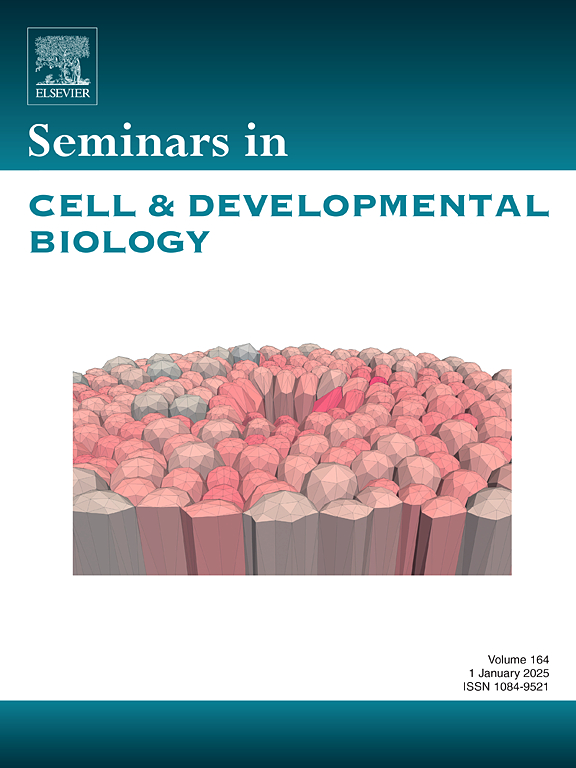动脉再生:分子、机制及对器官功能的影响
IF 6
2区 生物学
Q1 CELL BIOLOGY
引用次数: 0
摘要
补充动脉细胞来修复或创造新的动脉是一种很有前途的策略来重建缺血组织。然而,对与动脉(再)生长相关的细胞和分子程序的有限理解阻碍了我们设计最佳治疗方法的努力。在这篇综述中,我们总结了不同器官和生物体中驱动损伤诱导的动脉再生的不同细胞机制。胚胎发生过程中的动脉形成包括迁移、自我扩增和细胞命运的改变。这些过程由多种信号通路协调,如Vegf、Wnt、Notch、Cxcr4;其中许多也与损伤引起的血管反应有关。我们还强调了生理和环境因素如何决定动脉再血管化的程度。最后,我们讨论了不同的体外细胞重编程和组织工程方法来促进体内动脉再生。本文综述了目前对内皮细胞命运重编程的认识,并探讨了通过有效的血管再生来恢复器官功能的动脉再生途径。本文章由计算机程序翻译,如有差异,请以英文原文为准。
Artery regeneration: Molecules, mechanisms and impact on organ function
Replenishment of artery cells to repair or create new arteries is a promising strategy to re-vascularize ischemic tissue. However, limited understanding of cellular and molecular programs associated with artery (re-)growth impedes our efforts towards designing optimal therapeutic approaches. In this review, we summarize different cellular mechanisms that drive injury-induced artery regeneration in distinct organs and organisms. Artery formation during embryogenesis includes migration, self-amplification, and changes in cell fates. These processes are coordinated by multiple signaling pathways, like Vegf, Wnt, Notch, Cxcr4; many of which, also involved in injury-induced vascular responses. We also highlight how physiological and environmental factors determine the extent of arterial re-vascularization. Finally, we discuss different in vitro cellular reprogramming and tissue engineering approaches to promote artery regeneration, in vivo. This review provides the current understanding of endothelial cell fate reprogramming and explores avenues for regenerating arteries to restore organ function through efficient revascularization.
求助全文
通过发布文献求助,成功后即可免费获取论文全文。
去求助
来源期刊
CiteScore
15.10
自引率
1.40%
发文量
310
审稿时长
9.1 weeks
期刊介绍:
Seminars in Cell and Developmental Biology is a review journal dedicated to keeping scientists informed of developments in the field of molecular cell and developmental biology, on a topic by topic basis. Each issue is thematic in approach, devoted to an important topic of interest to cell and developmental biologists, focusing on the latest advances and their specific implications.
The aim of each issue is to provide a coordinated, readable, and lively review of a selected area, published rapidly to ensure currency.

 求助内容:
求助内容: 应助结果提醒方式:
应助结果提醒方式:


